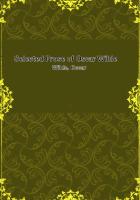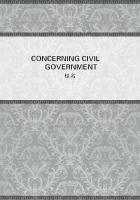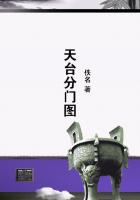with him until the 17th of November, when, having reached the caches on Bear River, andprocured
thence the required supplies, he sent them back to their party; appointing a rendezvous toward thelast of June following, on the forks of Wind River Valley, in the Crow country.
He now remained several days encamped near the caches, and having discovered a smallband of
Shoshonies in his neighborhood, purchased from them lodges, furs, and other articles of wintercomfort, and arranged with them to encamp together during the winter.
The place designed by the captain for the wintering ground was on the upper part of BearRiver,
some distance off. He delayed approaching it as long as possible, in order to avoid driving off thebuffaloes, which would be needed for winter provisions. He accordingly moved forward butslowly,
merely as the want of game and grass obliged him to shift his position. The weather had alreadybecome extremely cold, and the snow lay to a considerable depth. To enable the horses to carry asmuch dried meat as possible, he caused a cache to be made, in which all the baggage that could bespared was deposited. This done, the party continued to move slowly toward their winterquarters.
They were not doomed, however, to suffer from scarcity during the present winter. Thepeople
upon Snake River having chased off the buffaloes before the snow had become deep, immenseherds
now came trooping over the mountains; forming dark masses on their sides, from which theirdeep-mouthed bellowing sounded like the low peals and mutterings from a gatheringthunder-cloud. In
effect, the cloud broke, and down came the torrent thundering into the valley. It is utterlyimpossible,
according to Captain Bonneville, to convey an idea of the effect produced by the sight of suchcountless throngs of animals of such bulk and spirit, all rushing forward as if swept on by awhirlwind.
The long privation which the travellers had suffered gave uncommon ardor to their presenthunting.
One of the Indians attached to the party, finding himself on horseback in the midst of thebuffaloes,
without either rifle, or bow and arrows, dashed after a fine cow that was passing close by him,and
plunged his knife into her side with such lucky aim as to bring her to the ground. It was a daringdeed; but hunger had made him almost desperate.
The buffaloes are sometimes tenacious of life, and must be wounded in particular parts. Aball
striking the shagged frontlet of a bull produces no other effect than a toss of the head and greaterexasperation; on the contrary, a ball striking the forehead of a cow is fatal. Several instancesoccurred
during this great hunting bout, of bulls fighting furiously after having received mortal wounds.
Wyeth,
also, was witness to an instance of the kind while encamped with Indians. During a grand hunt ofthe
buffaloes, one of the Indians pressed a bull so closely that the animal turned suddenly on him. Hishorse stopped short, or started back, and threw him. Before he could rise the bull rushed furiouslyupon him, and gored him in the chest so that his breath came out at the aperture. He wasconveyed
back to the camp, and his wound was dressed. Giving himself up for slain, he called round him hisfriends, and made his will by word of mouth. It was something like a death chant, and at the endof
every sentence those around responded in concord. He appeared no ways intimidated by theapproach
of death. "I think," adds Wyeth, "the Indians die better than the white men; perhaps from havingless
fear about the future."
The buffaloes may be approached very near, if the hunter keeps to the leeward; but theyare quick
of scent, and will take the alarm and move off from a party of hunters to the windward, evenwhen
two miles distant.
The vast herds which had poured down into the Bear River Valley were now snow-bound,and
remained in the neighborhood of the camp throughout the winter. This furnished the trappers andtheir Indian friends a perpetual carnival; so that, to slay and eat seemed to be the mainoccupations
of the day. It is astonishing what loads of meat it requires to cope with the appetite of a huntingcamp.















